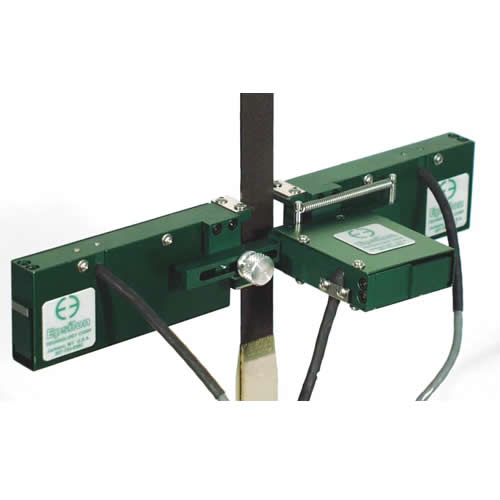Extensometers for Mechanical Testing <---
Bi-Axial or Axial Averaging Extensometers Model 3560
A single integral unit provides simultaneous lateral (transverse) stress and averaged axial stress measurement. The unit is also available as just an averaged axial extensometer. This extensometer is ideal for testing anisotropic materials such as advanced composites, as well as for general purpose tests such as determining the Poisson radius.
The first version, the 3560BIA uses (there is an extra space between these two words) a unique Epsilon design, where the edges of the blades remain parallel during travel. This approach greatly reduces inter-axis crosstalk and allows use on round or flat specimens just as easily.
These extensometers are very easy to assemble.
-
Integral springs hold the unit in the test sample.
-
The multiple parallel flex design makes these units very durable.
-
The Model 3560AVG reads axial stress only, as a single averaged output.
-
It can also be supplied with two independent outlets, one measure on each side of the sample. This configuration is most common when a specific sample doubling indication is desired and required.
The second version, the Model 3560BIA, includes both the axial tension averaged and the transverse tension. Again, this can also be configured as two independent axial readings, resulting in a three-channel extensometer.
-
The Model 3560 extensometers are strain gauges, which are compatible with any electronic device designed for strain transducers. They are often connected to a testing machine controller.
-
Signal conditioning devices for the extensometer are typically included with the testing machine controller or can be added. In this case, the extensometer is supplied with the appropriate connector and wiring to connect directly to the electronics.
-
For systems that lack the necessary electronic components, Epsilon can provide a variety of solutions, allowing the extensometer output to be connected to data acquisition cards, chart recorders, or other equipment.




